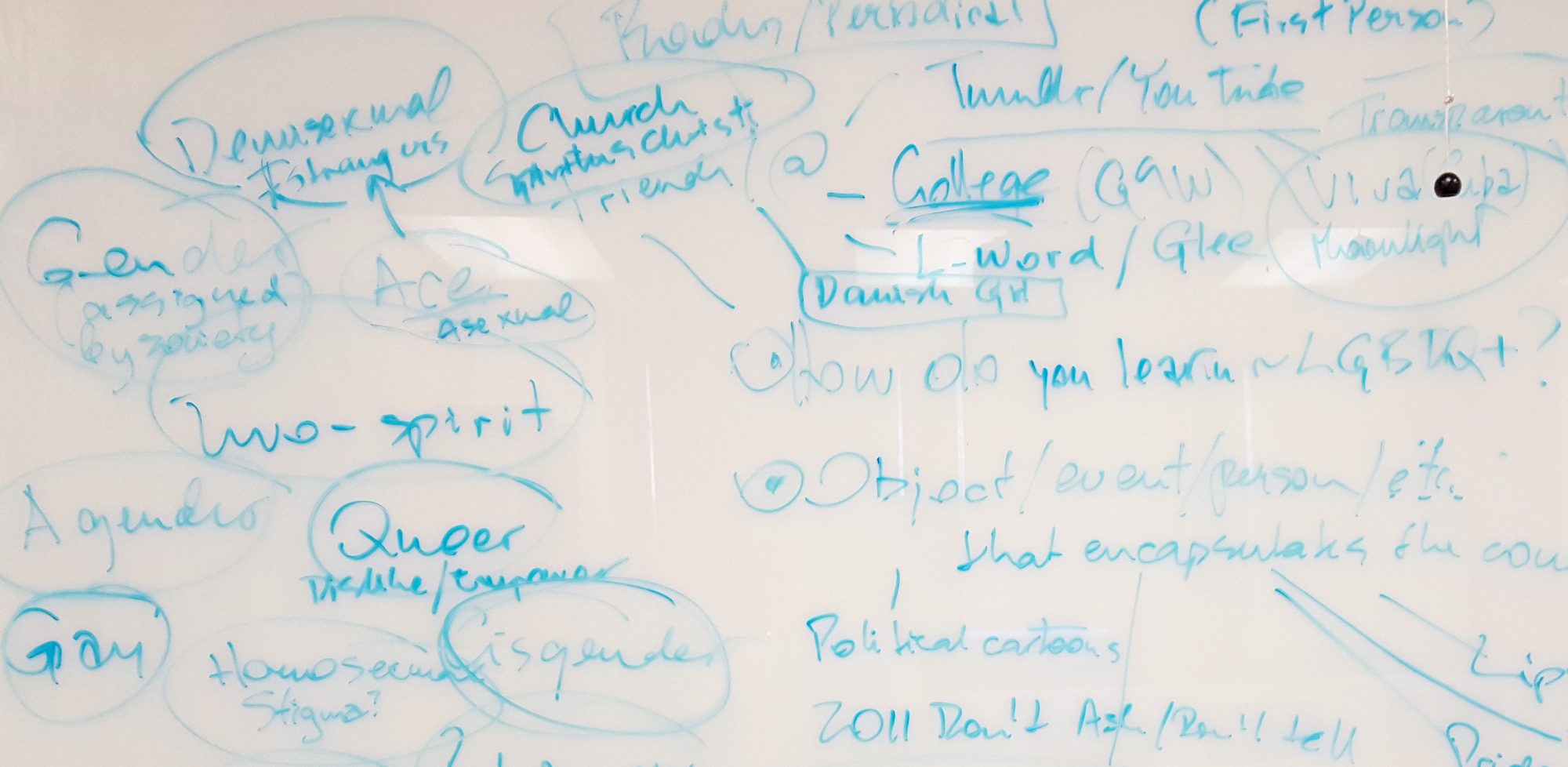One of the objects from our visit to the Special Collections that particularly stood out to me was an article for the Empty Closet called “Lesbian Life and Happiness In Rochester”, which was published in the April 1985 paper. The article describes a lesbian couple who had been together for 50 years having to keep their relationship a secret, and buried in lies. Lies that they were only together to cut the cost of living, never able to reveal that they were lovers. This stood out to me because I didn’t think much of the lengths to which same- sex couples had to go in order to protect themselves. The article also describes resource centers such as the Lesbian Resource Center, the Gay Alliance, and the Metropolitan Community Church. I think that this article is important to campus and city communities because it acknowledges the difficultiy of being in a same- sex relationship, and the fears that society won’t accept it.
The day after the inauguration of Donald Trump, I went to the Women’s March on Raleigh. The streets of Downtown Raleigh were flooded with people, both men and women. In my ignorance, I did not notice that the turnout at the march was nearly all white men and women until I went home and read about the Women’s March. Several of the articles mentioned that while the aim of the Women’s Marches was positive, it failed at achieving intersectionality and was only focused on a brand of white feminism. This became more apparent when I went on Instagram, and in the comments section of a feminism account I follow, it discussed the problematic nature of “token selfies” of the Women’s Marches. This made me upset because while it came across like an attempt at inclusivity and visibility, the majority of the posts seemed like only a pass at celebrating diversity.
-ML
